Speech to delegates at the 116 th Union of BC Municipalities Convention
Today I was afforded the opportunity to present to delegates at the 116th Union of BC Municipalities Convention in Vancouver. Below I reproduce the complete text (with links) of this speech.
Text of Speech
It’s a great honour for me to be able to once more address you, the delegates to the UBCM.
You know, two weeks ago, and just 15 minutes before I was supposed to give a keynote at the Canadian Propane Association BC Seminar in Langley, I was hit with acute vestibular neuritis which put me in hospital for 5 days.
The irony is not lost on me…but you can imagine how grateful I am to be up and on stage here today.
While I am expected to make a complete recovery in a few weeks, I had to limit my activities which meant that my scheduled meetings with local government representatives this week were all cancelled. For that I sincerely apologize.
In the audience today there are many politicians.
Some of you lean left.
Some of you lean right.
In my case, the vestibular neuritis has left me tilting right and left on a second by second basis but I look forward to stabilizing somewhere in the middle shortly.
The one silver lining in all of this is my incapacitation couldn’t have come at a better time… right at the start of the 2019 Rugby World Cup!
————
There’s a lot of new faces in the crowd this year so for those of you who don’t already know my background I’d like to add that prior to joining the legislature in 2013 as the lone BC Green MLA, I was the Lansdowne Professor and Canada Research Chair in Climate Modelling and Analysis at the University of Victoria.
I served as a Lead Author in the last four United Nations Intergovernmental Panel on Climate Change Assessment reports.
I ran for election in 2013 as I could no longer watch what was happening to our province from the sidelines.
I ran as a point of principle, never actually expecting to get elected (after all no Green Party politician anywhere in Canada had ever before been elected at the provincial level).
I ran on a platform of evidence-based decision-making to counter the decision-based evidence-making rhetoric espoused by so many of our political leaders.
I ran on a platform of ensuring that we focus on the long-term consequences of our decisions instead of solely being fixated on what it would take to get reelected.
I ran to offer British Columbians a vision of social, economic and environmental prosperity grounded in the incredible opportunity afforded us by the challenge of global warming.
And here we are today, two years after the 2017 election delivered a minority government with my two BC Green Caucus colleagues and I holding the balance of responsibility. It’s been a remarkable journey.
Keeping with this year’s theme of ‘resilience and change’, I want to speak to you both as a climate scientist and as a political leader.
In doing so I hope to convince you that each and every challenge our province faces needs to be embraced and thought of as an incredible opportunity for innovation.
And innovation is the foundation of any modern economy.
First, the science.
Since we met last year, a number of sobering reports have been released:
The first was the 2018 IPCC special report in which the world’s leading climate scientists warned there are only a dozen years for global warming to be kept to a maximum of 1.5°C, beyond which even half a degree will significantly worsen the risks of drought, floods, extreme heat and poverty for hundreds of millions of people.
A few months later, Canada’s Changing Climate was published by the Federal government.
The report noted that Northern Canada is warming at twice the global rate and highlighted BC as being particularly vulnerable to drought, glacial loss, sever wildfires, and to sea level rise, which will salinate farm land.
Shortly after that we had the report from the UN Intergovernmental Science-Policy Platform on Biodiversity and Ecosystem Services that stated, in stark terms, that we are in the midst of an extinction crisis with a million species likely disappearing within decades.
The consequences of which would be devastating for ecosystem stability and food production.
Then we got the report from the UN’s special Rapporteur on extreme poverty and human rights.
Professor Alston said the world is on course for “climate apartheid,” where the rich will buy their way out of the worst effects of global warming and the poor will suffer. Even under the best-case scenario, he wrote, hundreds of millions will face food insecurity, forced migration, disease, and death.
Staying the course will be disastrous for the global economy and pull vast numbers into poverty.
Most recently, the province quietly released their Strategic Climate Risk Assessment for British Columbia.
In it, severe wildfires, seasonal water shortages, and heat waves are the three highest-ranked risks facing the province in terms of severity, magnitude, and likelihood. Ocean acidification, glacier mass loss, and long-term water shortages also top the list.
In the span of just a few centuries, Earth has made a transition from a past, when climate affected the evolution of human societies, to the present, in which humans are affecting the evolution of the climate.
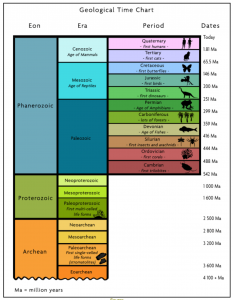 Starting in the late Paleozoic, more than 300 million years ago, and extending through Mesosoic (known as the Age of the Reptiles), the world’s great coal, oil and natural gas reserves were formed. In doing so, carbon dioxide was drawn down from the atmosphere over a period of tens of millions of years.
Starting in the late Paleozoic, more than 300 million years ago, and extending through Mesosoic (known as the Age of the Reptiles), the world’s great coal, oil and natural gas reserves were formed. In doing so, carbon dioxide was drawn down from the atmosphere over a period of tens of millions of years.
Today, we are turning back the clock by returning that carbon to the atmosphere in a matter of a few decades.
As I stated in last year’s address: elected leaders are at a pivotal moment in human history. We are responsible for deciding what path the future climate will take.
That is not something I say lightly. I feel the pressure of that responsibility in everything I do. It weighs heavily on me. But I know I am not alone in that and, while unpleasant, it’s also a good sign.
I can sense, for the first time in my career, that a change in the tide is coming.
In every challenge, there is opportunity. The greater the stakes, the higher the potential. British Columbians are eager for innovation and excited about building a sustainable economy.
Young people, in particular, have made this abundantly clear over the last year.
Millions of students, including many hundreds on the lawn of the legislature last Friday, are demanding elected officials protect their future.
You will die of old age, one sign read, I will die of climate change.
People are ready to support leaders who take climate action seriously.
Change is coming whether we like it or not, so let’s choose to be courageous.
To the opportunities I promised you earlier:
We are immensely fortunate to live in British Columbia. It is quite literally one of the best locations on the planet from which to navigate the climate related challenges ahead.
To start, BC has three strategic advantages over virtually every other region in the world.
- The quality of life and natural environment allows us to attract and retain some of the best and brightest minds from around the globe — we are a destination of choice.
- We have a highly skilled and educated workforce. Our high school students are consistently top ranked internationally. They are smart, well trained and they are ready to go to work. And we have exceptional post secondary institutions throughout our province.
- We have access to boundless renewable energy, fibre and water like no other jurisdiction in the world. We have incredible potential to create clean, renewable energy and forestry sectors to sustain our economy.
Transitioning to a carbon neutral world doesn’t mean going back to the dark ages. It means transitioning to a cleaner, sustainable society where economic, social and environmental concerns are central in all our decision making.
In fact, if we start right now, we stand a decent chance of transforming society without huge disruption.
What I am describing is not an impossible utopia. Every example listed is grounded in current economic trends, scientific evidence, and already established best practice.
We have so much to gain. It’s not just possible that the transition to a clean economy could create jobs. It is inevitable – Jobs that are inspired, important, and valuable. This shift can be the vehicle to deliver a more just, equitable, and healthy society.
To capitalize on these possibilities, we need to start planning beyond the next election cycle. We need to focus on building a new economy that works for all of us — not just the privileged few.
Policies must be based on principles and evidence, not political calculation and opportunism.
And as government leaders we must collectively do everything we can to develop policies that promote, rather than hinder innovation in or economy.
 Over the last two years, my team and I have been working with Minister Heyman to design CleanBC, our ambitious economic plan to build a thriving, climate-responsible and climate-resilient economy.
Over the last two years, my team and I have been working with Minister Heyman to design CleanBC, our ambitious economic plan to build a thriving, climate-responsible and climate-resilient economy.
With no silver-bullet solution to solving climate change, it is a collection of policies, incentives, targets, and regulations that will revive our economy and, if fully implemented, collectively achieve a 40% reduction in GHG emissions (from 2007 levels) by 2030.
It includes transitioning to 100% zero-emission vehicles by 2040, demanding far greater energy efficiency in both new and existing buildings, and investing significantly in training workers for a low-carbon economy.
Governments talk a lot about competitiveness, saying if we ask too much of companies they will leave.
But I have never understood why we want to be competing with other jurisdictions who are willing to sacrifice their clean air, land and water or willing to commit human rights abuses, all in order to see who can extract their resources cheaper and faster.
I believe government should be playing a more active role in supporting the type of economy we want to build. Not simply managing the one we have, ignoring the challenges on the horizon.
I don’t want to drag BC into a race to the bottom by subsidizing the tired, and dwindling industries from the last century.
I want to compete in an entirely different arena – for who can be the best, leanest, most efficient, with the healthiest, happiest citizens.
Thoughtfully designed policies can send signals to the market and spur innovation.
Many companies in BC are already leading the way within their sector.
At the tech summit earlier this year, I had the opportunity to moderate a panel with a number of inspiring companies who are pushing the envelope – creating high quality jobs and harnessing the power of innovation to help us respond to the climate crisis.
MineSense, for example, is one I talk about often because they epitomizes the type of approach I am talking about. Their real-time, sensor-based ore sorting technologies allow them to analyze a rock face and determine whether it is economical to ship it to the crusher, or if it should be put aside for fill.
Investing in innovation has made their process smarter, more efficient, and saved them money along with saving water.
They can export their product, but they have also been able to export the technology.
 Another inspiring BC company is General Fusion. General Fusion is a truly groundbreaking company, at the forefront of clean tech.
Another inspiring BC company is General Fusion. General Fusion is a truly groundbreaking company, at the forefront of clean tech.
Based in Burnaby, they are working towards commercializing affordable, abundant, safe and emission-free electricity from fusion energy. This company has the potential to transform the world through transforming our energy supply.
Carbon Engineering is a Canadian company that has developed innovative technology to create liquid fuels from atmospheric carbon dioxide, who set up shop in Squamish a few years ago.
Their potentially revolutionary technology also has the ability to capture and sequester human produced carbon dioxide directly from the atmosphere. A BC company that has become famous around the world.
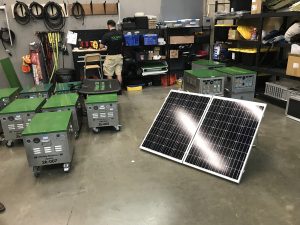 Then there are Portable Electric and Corvus Energy, two Vancouver-based success stories delivering mobile and marine electricity storage systems, respectively.
Then there are Portable Electric and Corvus Energy, two Vancouver-based success stories delivering mobile and marine electricity storage systems, respectively.
Portable electric’s battery power stations are a clean alternative to diesel generators are already being used to power everything from festivals to film sites.
And let’s not forget Unbuilders, a growing team of highly skilled tradespeople who have recognized opportunity in deconstruction.
Instead of demolishing old homes, they deconstruct them piece by piece and salvage vast quantities of historical old growth and other used building materials.
The sale of the residuals means it ends up costing less to deconstruct an old building than demolish it.
What an incredible example of innovation in the building sector. And it is all BC-based.
I could talk about my favorite BC-based, 21st Century companies all day, but noting the time, I’ll just mention one other.
Structurlam: What an amazing example of a thriving BC based business in the value-added forest sector.
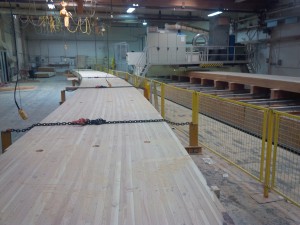 Their two main products Glulam and Crosslam are 100% engineered-wood laminations that are used as replacements in building construction for steel and cement, respectively.
Their two main products Glulam and Crosslam are 100% engineered-wood laminations that are used as replacements in building construction for steel and cement, respectively.
And they are committed to source lumber from BC-based companies like Kaleshnikoff Lumber Co. Ltd., a family owned business located in Tarry’s BC that was started in the late 1930’s by the children of Doukhobour immigrants who came to Canada in 1911.
These companies form the foundation of a strong, resilient, economy. Prosperity and jobs remain local as they they build on our strategic strengths ensuring that value added, technology and innovation are what we export.
Local governments, too, are already proving what is possible.
Last year, 50 local governments reported achieving carbon neutrality.
Last summer, the City of Surrey broke ground on the first community centre in North America to achieve Passive House certification.
In the District of Lillooet, community leaders implemented a plan to improve road safety for pedestrians and cyclists by expanding infrastructure and enhancing bike lanes.
Cities including Victoria, Vancouver, and Tofino are leading the way on taking action on single use plastics – a policy, the courts have made clear, that requires provincial leadership.
Paving the way for you to succeed is something I take very seriously.
I have been working with Minister Heyman on the Climate Change Accountability Act, to be tabled this fall, in the hopes that it, too, will bolster and support your ability to tackle this head on.
I look to you, as local leaders, to pick up the work I have started and make it better. Take in further, adapt it to the opportunities and needs in your community.
You know better than anyone how to be a champion for your constituents. I am asking you today, to be courageous, ambitious, and innovative.
Think further into the future and govern not just for your term, but for your children and grandchildren.
This is the moonshot of our generation.
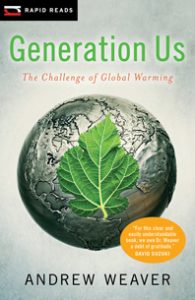 I’d like to end by reading the concluding paragraph of my book Generation Us: The Challenge of Global Warming that I wrote nearly a decade ago:
I’d like to end by reading the concluding paragraph of my book Generation Us: The Challenge of Global Warming that I wrote nearly a decade ago:
“Global warming has been branded an environmental problem. But it is really an economic and social problem. We’ve spent too much time living within a culture of global warming fear and denial. It’s time to recognize global warming for what it is: the most self-empowering issue we will ever face. Every consumer of energy is part of the problem. Every person is therefore part of the solution. We are entering an age of creativity and innovation unlike any that modern society has experienced before. Rather than fearing this change we need to embrace it. And the change starts in each and every one of our households. The time for Us is now.”
Thank you.

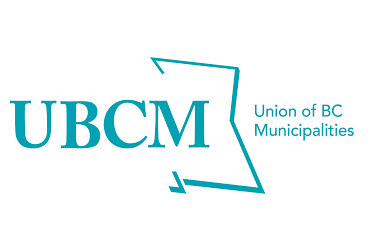



2 Comments
Thank Andrew. Great. Good to see u back up & running.
Wish I could have been present to hear it; very well done!